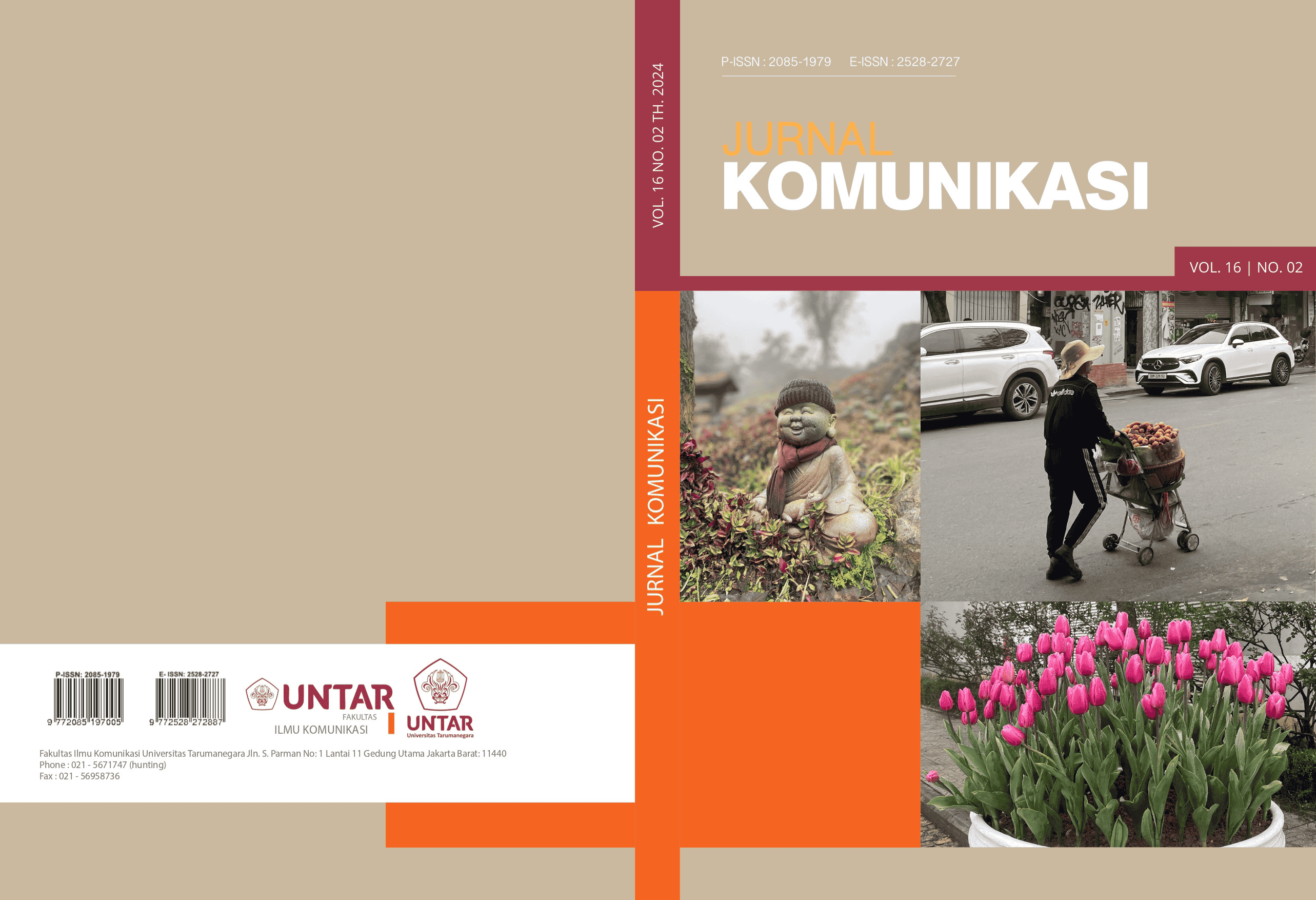Internationalization Narratives: An External Reputation or Higher Education’s Culture? (Dramaturgy Study Of Cultural Performance)
Main Article Content
Abstract
Internationalization narrative in Indonesia commonly mentioned in the national forum whether by political elites or ministry of education & culture. Those indicated that the government has already understood about the urgency of Higher Education (HE) in creating high-competitive human resources towards globalization era. Directorate General HE envisions world-class universities not only by rankings but through a quality culture, academic culture, and work culture. However, practically, developing region such as Lampung province has some issues in defining internationalization within their institutions. The purpose of the research is to desribe how higher education elite construct the front and back stage meaning of internationalization. The research, based on Schein's Organizational Culture and Pacanowsky and Trujillo's Communication Performance models, utilized phenomenological methods including in-depth interviews towards key informans, observations, and document analysis. Findings indicate alignment between Universitas Lampung (Unila)'s leadership assumptions and internationalization: globalization as certainy, international recognition orientation, and the significance of leadership in global competition. Key values promoted include dignity in equality, prestige, local wisdom, and global awareness. Internationalization is interpreted as striving for World Class University status. The study confirms through dramaturgy theory that Unila demonstrates leadership commitment and uses prestige rhetoric to unify leaders, though enculturation and global awareness are lacking, resulting in low student engagement in international programs. World Class University is seen as a dynamic expression of institutional image and reputation, facing various challenges.
Article Details

This work is licensed under a Creative Commons Attribution-ShareAlike 4.0 International License.
This work is licensed under a Jurnal Komunikasi Creative Commons Attribution-ShareAlike 4.0 International License.References
Abduh, A., Rosmaladewi, R., & Basri, M. (2018). Internationalization awareness and commitment of indonesian higher education. New Educational Review, 51(1), 162–172. https://doi.org/10.15804/tner.2018.51.1.13
Agung Gede Oka Wisnumurti, A., Ketut Darma, I., & Nyoman Reni Suasih, N. (2018). Government Policy of Indonesia to Managing Demographic Bonus and Creating Indonesia Gold in 2045. IOSR Journal Of Humanities And Social Science (IOSR-JHSS, 23(1), 23–34. https://doi.org/10.9790/0837-2301072334
Altbach, P. (2015). Perspectives on Internationalizing Higher Education. International Higher Education, 27, 6–8. https://doi.org/10.6017/ihe.2002.27.6975
Astriani, V., & Nooraeni, R. (2020). Determinan Pengangguran Lulusan Perguruan Tinggi Di Indonesia Tahun 2018. In JUPE (Vol. 08).
Barkley, E. . (2023). Higher education students’ motivation to transfer learning: a scoping review. Higher Education, Skills and Work-Based Learning, 13(1), 36–52. https://doi.org/10.1108/HESWBL-03-2022-0057
Barkley, E. F. (2010). Student Engagement Techniques (A Handbook for College Faculty). Jossey-Bass.
Buckner, E., & Stein, S. (2020). What Counts as Internationalization? Deconstructing the Internationalization Imperative. Journal of Studies in International Education, 24(2), 151–166. https://doi.org/10.1177/1028315319829878
Bungin, B. (2020). Post-Qualitative Social Reseacrh Metodhs (3rd ed.). Kencana.
Darla K Dearfoff, H. C. (2023). Leading Internationalization: A Handbook for International Education Leaders. Taylor & Francis.
Entrisnasari, F. V., & Khuriyah, K. (2023). Peningkatan Kompetensi Sumber Daya Manusia Dalam Internasionalisasi Pendidikan. Jurnal Kependidikan Islam, 13(1).
Goffman, E. (1956). The Presentation of Self in Everyday Life (Monograph No.2) (U. of Edinburgh (ed.)). Pelican Book.
Guo, Y., & Guo, S. (2017). Internationalization of Canadian higher education: discrepancies between policies and international student experiences. Studies in Higher Education, 42(5), 851–868. https://doi.org/10.1080/03075079.2017.1293874
Knight, J. (2015). Updated Definition of Internationalization. International Higher Education, 33. https://doi.org/10.6017/ihe.2003.33.7391
Kominfo. (2022). Hadapi Persaingan Global, Pendidikan Tinggi Harus Tingkatkan Daya Saing. https://kominfo.go.id/index.php/content/detail/3415/Kominfo+%3A+Pengguna+Intern et+di+Indonesia+63+Juta+Orang/0/berita_satker
LittleJohn, S. W., & Foss, K. A. (2014). Teori Komunikasi (9th ed.). Salemba Humanika.
Mali, M. G. (2020). Perguruan Tinggi Dalam Menghadapi Era Revolusi. Jurnal Manajemen Publik & Kebijakan Publik, 2(1), 68–78.
Miller, K. (2003). Organizational Communication (Approaches and Process) (Anderson (ed.); Third). Thomson Learning, Inc.
Moustakas, C. (1994). Phenomenological Research Methods. In Sage Publication. SAGE Publication, Inc.
Pacanowsky, M. E., & Trujillo, N. O. D. (2013). Organizational communication as cultural performance. Communication Monographs, 1(2), 19–29. https://search.proquest.com/openview/fb2cf0d250bb9f36fb0dc0bc7e704fe6/1?pq-origsite=gscholar&cbl=2030756%0Ahttps://www.tandfonline.com/doi/abs/10.1080/03637758309390158%0Awww.iiste.org
Pushnykh, V. A., Gulius, N. S., & Yatkina, E. Y. (2021). Impact of corporate culture on the universities’ achievements in the “5-100” project. Vysshee Obrazovanie v Rossii, 30(7), 31–39. https://doi.org/10.31992/0869-3617-2021-30-7-31-39
Qiang, Z. (2022). Internationalization of higher education. International Encyclopedia of Education: Fourth Edition, 1(2), 239–249. https://doi.org/10.1016/B978-0-12-818630-5.01029-0
Rokhman, F., Hum, M., Syaifudin, A., & Yuliati. (2014). Character Education for Golden Generation 2045 (National Character Building for Indonesian Golden Years). Procedia - Social and Behavioral Sciences, 141, 1161–1165. https://doi.org/10.1016/j.sbspro.2014.05.197
Schein, E. H. (1992). Organizational Culture and Leadership. Josey-Bass Inc.
Soebhan, R. S., Jati, W. R., Andriana, N., Noor, F., & Adam, A. W. (2017). Relasi Nasionalisme dan Globalisasi Kontemporer (W. R. Jati (ed.)). Pustaka Pelajar.
Swiss-Info. (2023). University of Zurich Withdraws from International University Ranking. Https://Www.Swissinfo.Ch/. https://www.swissinfo.ch/eng/education/university-of-zurich-quits-international-university-ranking/73693006
Tilak, J. B. G. (2016). Global Rankings, World-class Universities and Dilemma in Higher Education Policy in India. Higher Education for the Future, 3(2), 126–143. https://doi.org/10.1177/2347631116648515
Trenggono, N. (1995). Budaya Organisasi (Studi tentang Nilai-nilai dalam Kinerja Komunikasi BPIS). Universitas Indonesia.
Trenggono, N., Sulistyarini, D., & Wardhani, A. C. (2023). Leaders and Legacy: A Study of the Values of Lampung University in Indonesia in 1998–2019. 669–682. https://doi.org/10.2991/978-2-38476-046-6_66



